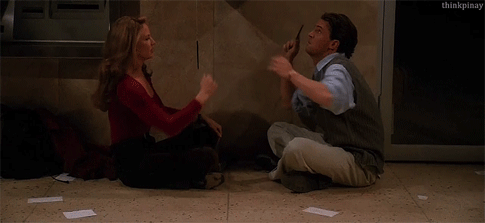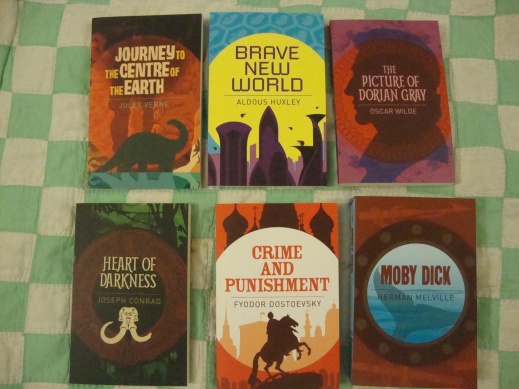It took me about a month, but I finally finished reading Aldous Huxley’s Brave New World, completing my journey through a dystopian future set in London in the year 2540 A.D. 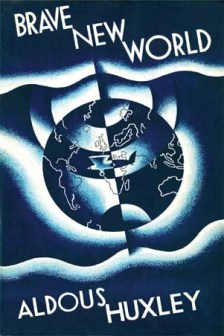
‘The greater a man’s talents, the greater his power to lead astray’
This quote sets the tone for Huxley’s novel, written in 1931, and published a year later in 1932. In the context of the history of the 20th century, the novel served as a unique, and menacing vision of the future during the interwar period between the end of the First World War (1914-1918), and the beginning of the Second World War (1939-1945).
Through his skillful prose, Huxley provides a prescient view of a future where he anticipates the development of various scientific ideas such as reproductive technology, sleep-learning, psychological manipulation, and classical conditioning. Human lives are controlled by a variety of forces including genetic engineering, indoctrination, and drugs. In fact, the concept of the individual is mired, and ultimately lost in the foundation of an “ideal” society where “everyone belongs to everyone else.”
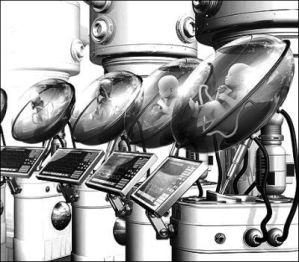
Spontaneous human desires, and emotions are nullified by the anesthetizing public mantras, the messengers of the societal indoctrination that pervades Huxley’s world, but it doesn’t matter as “everybody’s happy nowadays.” The reader is provided entry into this bleak, but brave new world, through the daily lives, and attitudes of the major characters in the novel. Through their eyes, the reader is able to identify his/her critical opinions of a biased world where skepticism is in itself a crime, feared as an unnatural, and tainting element of the supposed balance expressed in the societal hierarchy.
Throughout the novel, Huxley borrows heavily from the works of his predecessors. In particular, he draws inspiration from much of Shakespeare’s works, providing several quotations from The Tempest, Troilus and Cressida, Romeo and Juliet, and Macbeth to name a few. The title of the novel is in fact from Miranda’s speech in The Tempest,
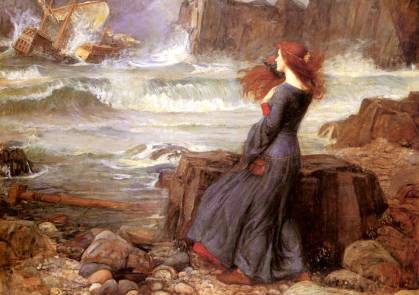
“O wonder!
How many goodly creatures are there here!
How beauteous mankind is! O brave new world,
That has such people in’t.”– William Shakespeare, The Tempest, Act V, Scene I, ll.
While Huxley himself speaks of his work’s inspiration from the utopian novels of H.G. Wells, including A Modern Utopia (1905) and Men Like Gods (1923), he disavows Wells’ hopeful vision of the future in place of the darker presentation he provides in his novel. Huxley’s novel also serves as a counterpart to the George Orwell’s 1984. The two novels differentiate themselves in the prescient views they prescribe to the future. While Orwell’s fears are borne of a world that rejects knowledge, Huxley’s fears are beset upon a world that finds knowledge redundant, or rather irrelevant.
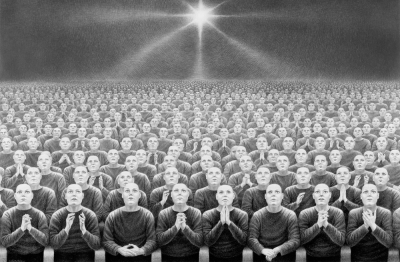
In conclusion, I believe Huxley feared the loss of the complexities that make human culture unique in exchange for triviality. He expresses this fears through the cyclical, and largely indifferent activities that his characters engage in their daily lives. By reading the book, and finding the various allusions it provides to modern-day society, I was left exhilarated at the daunting responsibility for the future that the current generation faces amidst a rapidly changing world. The triviality that Huxley frequently alludes to in his work is evident in today’s society, dominated by social media, leaving us blind to an extent, and in much need of a reassessment of what may constitute the necessary discussions, decisions, and actions we must partake in, for the greater security of our world, and the human species as a whole.

― Dave Eggers, A Hologram for the King
While Huxley may have realized his vision of such a brave new world several years ago, his work remains today as a warning, and as a reminder of the social responsibility every individual shares in the maintenance, and regulation of the world we live in.

